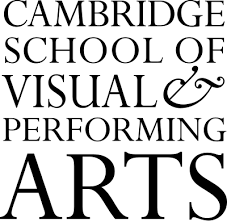Course Content
AURAL SKILLS
These skills are necessary for making progress in performance, composition, historical and analytical work. Aspects covered: sight-singing, interval and chord recognition, rhythmic dictation, as well as recognition of style, genre and period.
WORLD MUSIC
Explore and analyse the cultural aspects of world music; folk, fusion, non-Western ‘classical’ music and learn to play and compose in these styles. We will also examine how world music has influenced Western composition in the past, and continues to do so today.
COMPOSITION
Develop skills in refinement of musical ideas; developing ideas; understanding of the possibilities and limitations of instruments and voices; and clarity of notation and performance instructions. You will produce a portfolio of compositions, to include vocal and instrumental music, and music for theatre.
PIANO REPERTOIRE (FOR PIANISTS)
Broaden your knowledge of keyboard repertoire from the Renaissance to the present day. Learn how to plan balanced programmes for auditions, exams and concerts. There will also be discussions of different performing styles by pianists past and present. You will be encouraged to bring in scores from the reper toire you are learning for the class to explore.
VOCAL REPERTOIRE
Understanding of vocal repertoire including opera and art song. Learn how to plan balanced programmes for auditions, exams and concerts. Examine different performance styles by singers past and present.
HISTORY OF WESTERN MUSIC TO C.1880
This course provides you with a comprehensive overview of Western music history from the Middle Ages to Romanticism through listening, research and analysis. You will be encouraged to experience and evaluate music and its meaning with an open mind, and to explore more deeply areas that are relevant to your own field and interests.
MUSIC THEORY
Based on individual skill levels you will be entered for Associated Board theory exams at the appropriate grade at the end of the academic year.
POP ENSEMBLE (FOR STUDENTS PURSUING POPULAR MUSIC STUDIES)
Develop ensemble performing skills: to play accurately and musically together, to listen to other players, to understand balance of parts and to develop different ways of communicating ideas and intentions during performance.
CLASSICAL ENSEMBLE (FOR STUDENTS PURSUING CLASSICAL MUSIC STUDIES)
Develop ensemble performing skills from a wide range of repertoire and styles. The pieces could deploy anything from two singers/players to everyone in class. Apart from your main instruments, you will be encouraged to sing, play recorder, percussion and any other instruments that the others could play.
RECORDING
Develop a working knowledge of music production through a number of practical recording projects. The course focusses on recording production techniques that will include the use of microphones, recording techniques, mixing techniques, using effects and processors and mastering. The final outcome is a 2-3 song EP (Extended Play) CD as agreed with your tutor.








